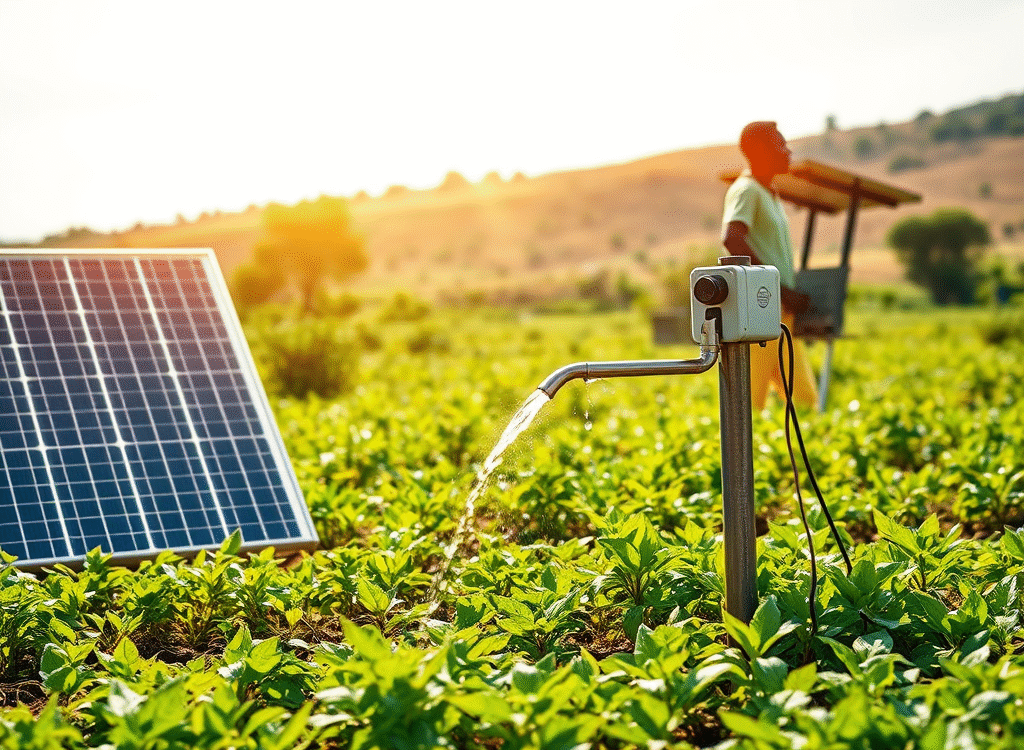Agriculture is the backbone of East Africa’s economy, yet millions of smallholder farmers still depend on unreliable rainfall and expensive diesel-powered pumps for irrigation. This dependence limits productivity, increases costs, and leaves farmers vulnerable to climate shocks. Access to reliable, affordable water solutions is no longer a luxury — it’s essential.
Solar water pumping technology is emerging as a game-changer. These systems harness the region’s abundant sunlight to power efficient, low-maintenance pumps that deliver water where and when it’s needed — without recurring fuel costs or grid dependency. As solar equipment becomes more affordable and durable, adoption is growing rapidly among farmers, cooperatives, and development agencies.
From Uganda to Kenya, Rwanda to Tanzania, solar water pumps are not just a trend — they are becoming a pillar of resilient, climate-smart agriculture..




Key Reasons Why Solar Water Pumps Are the Future of Sustainable Agriculture in East Africa
1. Cost-Effective and Low Maintenance
Solar water pumps eliminate fuel costs associated with diesel pumps and require minimal maintenance, reducing operational expenses for smallholder farmers. This affordability makes irrigation accessible to many who previously could not afford traditional pumps.
2. Environmentally Friendly and Climate Smart
Powered by clean solar energy, these pumps produce zero emissions, significantly lowering the carbon footprint of irrigation compared to fossil fuel-powered alternatives. This contributes to climate change mitigation while promoting sustainable farming practices.
3. Increased Agricultural Productivity and Food Security
Solar-powered irrigation enables farmers to water crops reliably year-round, overcoming the limitations of rain-fed agriculture. Studies and projects in Uganda and other East African countries have shown yields increase by up to five times with solar irrigation, allowing cultivation of higher-value crops and improving food security.
4. Labor and Time Savings
By automating water pumping, solar pumps reduce the labor intensity and time spent on irrigation. This frees farmers, especially women and children, to engage in other productive activities such as education, marketing, or additional farming tasks.
5. Empowerment and Economic Opportunities
Solar water pumps enable farmers to increase incomes through higher yields and crop diversification. Community-led initiatives and cooperatives using solar pumps have enhanced local economies and empowered marginalized groups, including women farmers.
6. Adaptation to Climate Change and Water Resilience
With climate variability causing unreliable rainfall and droughts, solar pumps provide a dependable water source, helping farmers adapt and build resilience. Projects like Uganda’s SPIAR have demonstrated how solar irrigation supports agricultural resilience in drought-prone areas.
7. Scalability and Supportive Initiatives
Government programs, NGOs, and private sector partnerships are scaling up the distribution and training related to solar water pumps, making the technology increasingly accessible. Subsidies, financing schemes, and local technician training are addressing barriers to adoption.
Summary
Solar water pumps represent a transformative technology for East African agriculture by making irrigation affordable, sustainable, and efficient. They reduce costs and emissions, boost crop yields and incomes, save labor, and enhance climate resilience for smallholder farmers. Supported by growing investments and community projects, solar water pumps are poised to drive a sustainable agricultural revolution across the region.
“Solar water pumps represent a double win for rural communities: they provide clean water while also combating climate change by reducing reliance on fossil fuels.” — Renewable energy expert
https://www.nefco.int/news/solar-water-pumps-in-uganda-are-securing-better-yields-for-farmers/
https://gadgetronix.net/solar-water-pumps-for-agriculture/
https://www.easypowerug.com/how-solar-water-pumps-are-revolutionizing-agriculture-in-uganda/
https://futurepump.com/advantages-and-disadvantages-of-solar-water-pumps/
https://leopump.com/en/media/info/how-solar-water-pumps-benefit-rural-communities.html



